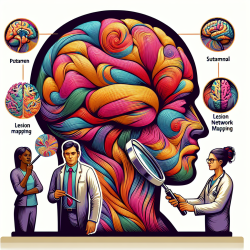Introduction
Individualized Education Program (IEP) planning and meetings are critical junctures in the educational journey of children requiring specialized support. As speech therapists, we often feel lost in the maze of paperwork, meetings, and planning. However, the power of data-driven decisions and a focused approach can transform these challenges into opportunities for enhanced student outcomes.
The Importance of Data in IEP Planning
Data is not just numbers; it is a narrative that tells the story of a child's progress, needs, and potential. By utilizing a data-driven approach, speech therapists can craft more effective and personalized IEPs. Here are some key points to consider:
- Baseline Assessment: Start with a comprehensive assessment to establish a baseline. This will guide goal-setting and measure progress over time.
- Progress Monitoring: Regularly track and analyze data to adjust strategies and interventions as needed.
- Collaboration: Share data with other professionals and parents to ensure a holistic approach to the child's development.
Integrating Online Speech Therapy
Incorporating online speech therapy into IEPs can significantly enhance accessibility and consistency of services. Here’s why:
- Flexibility: Online platforms allow for flexible scheduling, which can accommodate the diverse needs of students and their families.
- Resource Availability: Access to a wider range of resources and specialists who may not be available locally.
- Data Collection: Digital platforms often have built-in tools for data collection and analysis, facilitating ongoing progress monitoring.
Addressing Mental Health in IEPs
Mental health is an integral component of a child's overall well-being and should be a key consideration in IEP planning. Here are ways to integrate mental health into your approach:
- Holistic Assessment: Include mental health screenings as part of the initial assessment process.
- Collaborative Goals: Work with mental health professionals to set goals that address both speech and emotional needs.
- Family Involvement: Engage families in discussions about mental health to ensure support extends beyond the school environment.
Taking the Next Step
As speech therapists, it is our responsibility to ensure that each IEP meeting is not just a procedural requirement but a transformative experience for the child. By leveraging data, integrating online speech therapy, and addressing mental health, we can create more effective and meaningful IEPs.
Feeling lost is natural, but it is also a sign that you are ready to explore new strategies and take the next step in your professional journey. Consider how you can incorporate these elements into your practice and make a significant impact on the lives of the children you serve.










